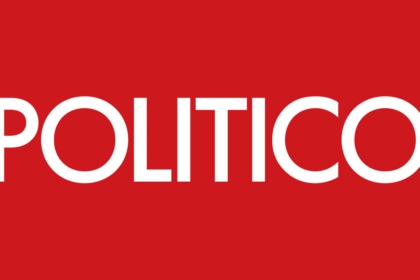
Delivered daily by 10 a.m., Pulse examines the latest news in health care politics and policy.
Delivered daily by 10 a.m., Pulse examines the latest news in health care politics and policy.
By signing up you agree to allow POLITICO to collect your user information and use it to better recommend content to you, send you email newsletters or updates from POLITICO, and share insights based on aggregated user information. You further agree to our privacy policy and terms of service. You can unsubscribe at any time and can contact us here. This site is protected by reCAPTCHA and the Google Privacy Policy and Terms of Service apply.
Loading
You will now start receiving email updates
You are already subscribed
Something went wrong
By signing up you agree to allow POLITICO to collect your user information and use it to better recommend content to you, send you email newsletters or updates from POLITICO, and share insights based on aggregated user information. You further agree to our privacy policy and terms of service. You can unsubscribe at any time and can contact us here. This site is protected by reCAPTCHA and the Google Privacy Policy and Terms of Service apply.
By DANIEL PAYNE and KRISTA MAHR
08/24/2022 10:00 AM EDT
With Megan R. Wilson and Megan Messerly
WELCOME TO WEDNESDAY PULSE, where we’re wondering if we have doppelgängers out there — and how much DNA we might share.
We want to hear from you (and your doppelgängers). Send us a note about what’s on your mind at [email protected] and [email protected].
A new strategy to extract five doses of the monkeypox vaccine from a one-dose vial seems to be falling short. | Joe Raedle/Getty Images
‘CHAOS’ FROM NEW MONKEYPOX PLAN — A new dose-splitting strategy announced earlier by the Biden administration this month was supposed to be a shot in the arm to the nation’s slow monkeypox immunization response.
Instead, it’s left state and local health officials accusing their federal counterparts of creative math, lamenting a paucity of vaccines and vaccinating a fraction of the patients they had planned to immunize just a week ago, Krista and Megan Messerly report.
The new federal guidance suggests five doses can be taken from each vial, which were initially meant to hold a single dose. And those administering the vaccine told POLITICO they’re routinely getting only three or four doses out of each vial through the new dose-splitting strategy.
Vaccine clinics have scrambled to rethink their strategies in light of the new recommendations and the wrinkles that have come with implementing them.
“The federal government has patted themselves on the back for how they’re accelerating the delivery of vaccines,” said Patrick Ashley, senior deputy director at Washington, D.C.’s Department of Health. “What they did is they moved numbers around.”
Federal officials heralded the move to split doses amid a vaccine shortage, saying it could fill the gaps. They’ve also asked state health officials to submit data on the new strategy, saying they could adjust the response based on new information.
But the move has turned out to be far more complicated than a simple multiplying of doses.
The government action — and fallout from it — comes as health experts emphasize the urgency of stamping out the spread of monkeypox, warning the virus could be in the U.S. for good if broad, sustained transmission continues.
Sen. Ron Wyden is requesting data on allegations of misleading Medicare Advantage and Part D marketing tactics; Medicare Advantage advocates are not happy. | Pool photo by Greg Nash
MEDICARE ADVANTAGE ADVOCATES PUSH BACK ON WYDEN INQUIRY — The Better Medicare Alliance is firing back at Senate Finance Chair Ron Wyden after the Oregon Democrat sent an inquiry to more than a dozen states seeking data on allegations of misleading marketing tactics involved in marketing Medicare Advantage and Part D plans, Megan R. Wilson reports.
“Medicare Advantage plans’ marketing materials are already subject to careful regulation,” Mary Beth Donahue, the leader of the advocacy group, said in a statement. Those advertisements and marketing materials, Donahue said, must be approved by regulators and adhere to a 53-page set of federal guidelines.
“A full accounting of the facts will show what seniors have been telling us all along: Medicare Advantage, with its lower costs, added benefits, and improved health outcomes, delivers a better consumer experience that deserves continued support and protection,” Donahue said, citing polling that shows a vast majority of beneficiaries are happy with their plans.
Wyden’s letters to insurance commissioners in 15 states ask for information on consumer complaints and examples of misleading advertising or aggressive sales tactics. He cites a Centers for Medicare and Medicaid Services stat showing that complaints related to the marketing of Medicare Advantage and Part D products, largely from third-party marketing organizations, more than doubled from 2020 to 2021.
CMS said in a rulemaking earlier this year that some beneficiaries have been confused by the third-party organizations marketing the plans, noting some people may not be aware they’re enrolling into a new plan when talking to them over the phone.
While these organizations “can serve a role in helping beneficiaries find a plan that best meets their needs,” CMS wrote, “additional regulatory oversight is required to protect Medicare beneficiaries from confusing and potentially misleading activities.”
SENATOR DEMANDS PRESERVING FAUCI FILES — Sen. Roger Marshall (R-Kan.) sent a letter Tuesday to HHS demanding all communications and records involving Anthony Fauci, the top infectious disease expert, and Francis Collins, the National Institutes of Health’s former director, be preserved for future investigations.
The request to retain all “documents, records, memoranda, research, correspondence, or other communication” related to Fauci comes just after he announced his plan to step down from his post leading the NIH before next year. Collins left his position last year.
It also comes as Republican lawmakers vow to investigate Fauci after he leaves.
COMING SOON TO AN ARM NEAR YOU — The U.S. and Europe are finalizing plans for updated, Omicron-specific Covid-19 boosters, likely just weeks away.
The Biden administration looks to start the rollout in September should the new formulation pass get approval from regulators.
The Pfizer formulation could be approved for those 12 and older and Moderna’s for those 18 and older. Younger authorizations could come in the future.
The U.S. government has purchased about 175 million doses of the shot.
In the European Union, a verdict on the new vaccines is expected Sept. 1, POLITICO’s Helen Collis reports. The companies began submitting data mid-summer, with governments looking to prepare for a possible fall and winter surge in cases.
The U.K. was the first country to approve the Omicron-specific shot, with its booster campaign beginning Sept. 5.
For countries where few people have first or second shots, the original formulation might have to be given widely before the Omicron-specific formulation is distributed.
ABORTION AT THE FRONT OF VOTERS’ MINDS — The number of voters who say abortion is “very important” to them in the midterms has jumped since March, according to a new Pew Research poll.
In August, 56 percent of voters said abortion was key to their vote — up from 43 percent in March. That puts it ahead of energy policies, immigration and foreign policy, though still well below the 77 percent of voters who see the economy as a top priority.
The overturning of Roe has set off new electoral strategies from Republicans and Democrats alike, and not just for seats in Congress.
Earlier polls have also shown abortion as a leading — and growing — issue, one that could be a key differentiator in the November elections.
EBOLA RETURNS IN THE DRC — A new case of Ebola has been confirmed in the Democratic Republic of the Congo, the World Health Organization said Tuesday.
The country has about 1,000 doses of Ebola vaccine, and it will send about 200 to the affected region. The most recent case was genetically linked to an earlier outbreak from 2018 through 2020. Another outbreak was reported in 2021, with 11 cases and six deaths.
“Ebola resurgences are occurring with greater frequency in the Democratic Republic of the Congo which is concerning. However, health authorities in North Kivu have successfully stopped several Ebola flare-ups and building on this expertise will no doubt bring this one under control quickly,” Matshidiso Moeti, WHO regional director for Africa, said in a statement.
TPOXX TRIAL IN THE U.K. — The orthopox antiviral used to treat monkeypox is being studied by Oxford University, which is looking to enroll 500 patients.
The study, called PLATINUM, has now recruited its first patients. It is a randomized, placebo-controlled trial in nonhospitalized patients.
More data on Tpoxx could lead to more approvals and, therefore, wider access within countries. The drug has been in relatively short supply globally but is thought to hold promise for monkeypox.
Countries worldwide have been discussing purchasing Tpoxx, often for the first time. The U.S. has a significant stockpile and hasn’t opted to grow that supply, insisting there’s enough, even given the outbreak.
The federal government has made thousands of doses available to the states, though some patients have reported problems getting the treatment.
The plan to stretch monkeypox doses is already facing challenges, Stat’s Helen Branswell and Theresa Gaffney report.
Gregg Gonsalves reflects on the Fauci era in a New York Times essay.
The slow process to rename monkeypox is still ongoing, The New York Times’ Andrew Jacobs reports.
© 2022 POLITICO LLC




